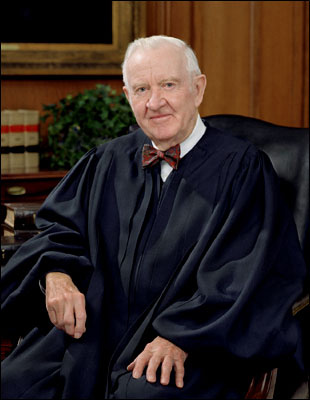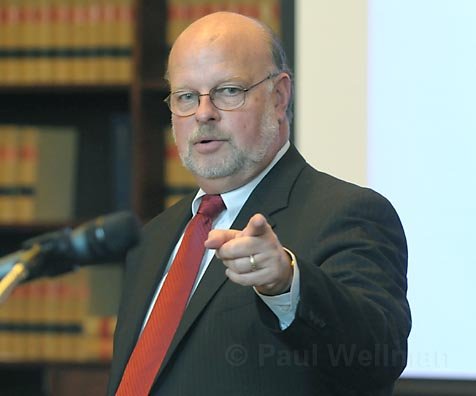S.B. Defense Attorney Interviews Justice Stevens
Stevens Defends Anti-Death Penalty Stance
Santa Barbara defense attorney Robert Sanger spoke with John Paul Stevens, the third longest-serving U.S. Supreme Court Justice, last month about his famously modified stance on the death penalty.
Stevens was nominated to the Supreme Court by President Gerald Ford in 1975 and began his career as a self-proclaimed Republican. In the 1976 Supreme Court ruling of Gregg v. Georgia, Stevens voted to uphold capital punishment. He later went on to say the vote was the one decision he regretted during his time in office and that he did not anticipate the future of the law. By the time he retired in 2010, often clashing with the late Justice Antonin Scalia, Stevens was considered the liberal voice of the Supreme Court.

The diminutive justice was firm in his dissent as he told Sanger that as of 2012, more than 140 prisoners since 1973 have been released from death row because of wrongful conviction. In light of this “unacceptable” risk, Stevens said the country must abolish the death penalty to prevent further cases of “mistaken and irrevocable state action.”
In California, a pro-death penalty group has proposed a 2016 ballot measure aimed at expediting executions in California. Nearly 750 people have been on death row for up to thirty years, and anti-death penalty groups suggest the punishment be replaced by sentences of life without parole. Because of the alternate option, Stevens said the death penalty has lost its deterrent value and does nothing to prevent criminal offenses.
Inquiring about future lawmaking, Sanger asked whether the Supreme Court should approach the issue head-on by passing abolishment legislation. Stevens supported the idea, but he said legislation is one part of a many-headed solution for the “outrageous” expenses incurred by capital trials. “It doesn’t make sense for society to engage in such a wasteful enterprise when there are so many good arguments against it,” Stevens said, placing responsibility on voters and judges in each state to rebuke capital punishment laws.

Speaking to lawyers at the California Attorneys for Criminal Justice (CACJ) Capital Case Seminar in Fort Lauderdale, Florida, Stevens concluded his eloquent responses to Sanger by commending the attorneys for defending inmates against capital punishment. “As long as the death penalty continues, however, it is critical that capital defendants receive the strongest possible defense against that irreversible sentence,” Stevens said.



